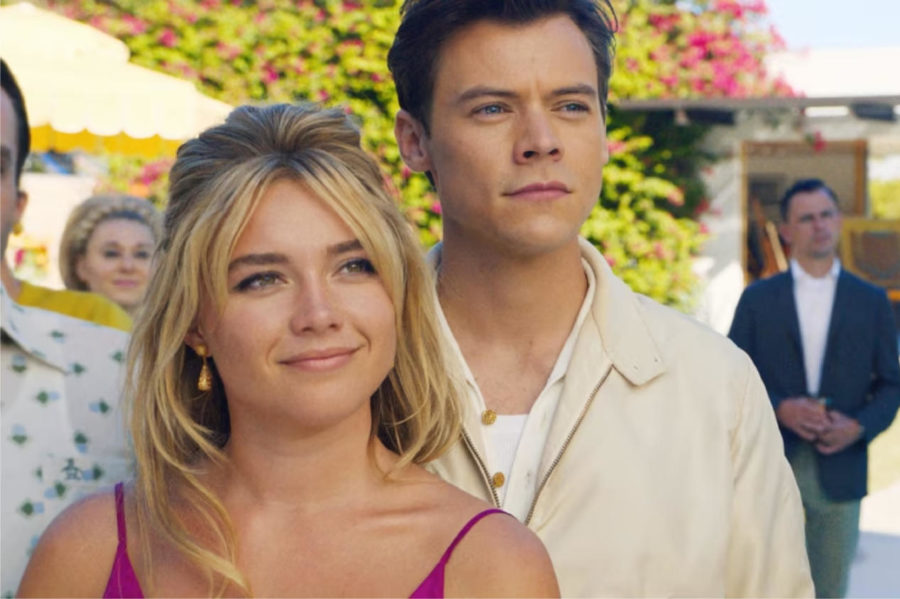Singer-actor duality could be Hollywood’s new phenomenon, but should it?
Florence Pugh and Harry Styles in “Don’t Worry Darling.” Photo provided by Warner Bros. Entertainment.
October 21, 2022
Harry Styles has been my celebrity crush for as long as I can remember.
From the beginning of my older sister’s One Direction obsession to his extremely successful solo career, I have stuck with my man. Though Styles has largely avoided any big controversies throughout his career, many people (including his own fans) have been critical of his relatively recent foray into acting.
Since Styles’s acting debut in Christopher Nolan’s “Dunkirk” in 2017, spectators have criticized his acting and encouraged him to stick to what he knows best – singing. However, Styles is not alone in this phenomenon.
For the past few years, I have noticed an uptick in people in the entertainment industry taking on projects unfamiliar to their craft. I have seen actors move into the music industry, namely “Community” and “Atlanta” star Donald Glover, who has created a successful rap career under the stage name Childish Gambino.
However, I feel the phenomenon is more common with singers moving into the acting scene. This can be seen in so many hit blockbuster movies, anywhere from Taylor Swift in the upcoming film “Amsterdam” to Beyonce in the live-action “Lion King” movie and, most recently, Styles in “Don’t Worry Darling.”
Though this isn’t necessarily a bad thing, it’s interesting to look into why this would occur.
So many of these names are well known around the world. According to The Times, Styles alone has an estimated net worth of 100 million pounds ($112 million), is a three-time Grammy winner and was the first man to be on the cover of American Vogue, to name a few of his accomplishments. The man is a definite success story, so why even bother with acting in the first place?
I’m sure there are many reasons behind this, one of which is just pure name recognition. If potential movie-goers see big names like “Harry Styles” or “Beyonce” in a movie they might be interested in, it may pique their interests further. Additionally, these pop stars tend to have cult-like followings/fan bases that will contribute to viewership and promotion of the film at hand.
And, potentially the most pressing issue for movie theaters and production companies is recovering lost revenue from the COVID-19 pandemic that hit the entertainment industry hard.
According to Forbes, “(t)he $2.2 billion in box office receipts in 2020 marked a 40-year low in domestic box office,” which, combined with a 66% decline in new movie releases from 2019, led to a particularly hard blow to the film industry.
I’m not saying that the integration of pop stars into film is all a marketing ploy on behalf of casting and producing companies, and I’m not implying that all film performances by these musicians are bad. After all, many of them have been heralded for their acting, and some have received major nominations for their performances.
However, I think it’s important to understand the potential backdrop to these casting decisions, and I definitely think we should be critical of these people, especially due to their notoriety and large fan bases.
Recognizing that our favorite celebrities can have faults or weak spots is important for us to see them as human, and not put them on a pedestal as these imperfect beings we can never be.




























































































































































